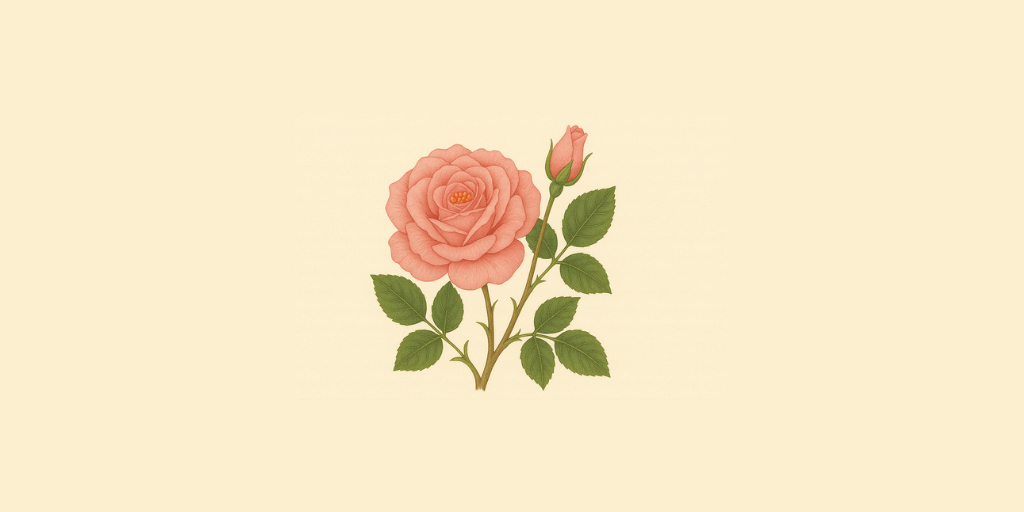Sanskrit Name: Taruni, Shatapatrika
Devanagari Name:गुलाब
Botanical Name: Rosa centifolia
English Name: Rose
Description:
Rosa centifolia, commonly referred to as Shatapatri or Taruni, is found in various regions of India. This flower is utilized in traditional medicine to treat a range of ailments.
Rose powder and petal jam (gulkand) are beneficial for digestive issues such as hyperacidity and diarrhea, owing to their anti-inflammatory effects.
Rose water, extracted from the petals, is effective for revitalizing the skin and addressing skin issues like allergies and acne. A few drops can offer quick relief from eye strain due to its cooling (Sita) and healing (Ropan) qualities.
However, it is recommended to seek medical advice before using rose water for eye-related concerns.
Using rose oil in a diffuser can promote relaxation and tranquility, as its scent is known to significantly enhance mood.
Benefits – Through the lens of Ayurveda
- Pittahara – Pacifies Pitta
- Hridya – Cardiotonic; good for heart
- Raktaprasadana – Purifies and nourishes blood
- Varnya – Improves complexion
- Rasayana – Rejuvenative
- Tridoshaghna (especially Pitta-Vata) – Balancing to doshas
- Mutrala – Diuretic
- Shantikara – Calming and stress-relieving
- Stanyashodhana – Purifies breast milk (as per some texts)
Main Chemical Components:
- Geraniol
- Citronellol
- Eugenol
Nutritional Components:
- Vitamin C
- Flavonoids
- Small amounts of calcium and iron
Medical Conditions(Relief):
- Rose petals are rich in antioxidants and have anti-inflammatory properties that help in reducing redness and irritation in the skin.
- They are widely used in skin care products to treat acne, eczema, and other inflammatory skin conditions.
- Rose is also beneficial for its calming effects on the mind, reducing stress and anxiety.
- It is known to support digestive health, helping with bloating, indigestion, and nausea.
- Rose water, made from the petals, is also used to hydrate and tone the skin, and promote a youthful glow.
- It helps improve skin health by hydrating, reducing signs of aging, and promoting a healthy complexion.
Medical Conditions(Avoid):
- Rose should be avoided by individuals who have allergies to flowers in the Rosaceae family.
- Pregnant and breastfeeding women should consult a healthcare provider before using rose essential oils or extracts regularly.
References:
- Kaiyadeva Nighantuh Prof. Priyavrata Sharma and Dr. guru Prasada Sharma Chaukhambha Orientalia Varanasi Reprint, 2013.
- Nighantu aadarsa vol-2 by Bapalala. G. Vaidya Chaukhambha Bharati Academy reprint, 2009.
- Haritakyadi Nighantu, edited by Khemraj Shrikrishnadas, Mumbai, 2000.
- Bhavaprakasa Nighantu of Sri Bhavamisra, commentary by Padmshri prof. K. C. Chunekar edited by Dr. G. S. Pandey. Chaukhambha Bharati Academy Varanasi. Reprint, 2015.
- Priyanighantu by Prof. Priya Vrata Sharma, Chaukhamba Surbharati prakashan, Varanasi. Edition, 2004.
- Rajanighantu of Pandit Narahari, edited with Dravyagunaprakashika, Hindi commentary by Dr.Indradeva Tripathi, Chowkhamba Krishnadas Academy, Varanasi, 2010.
- Raipure S. Taruni (Rosa centifolia Linn.) is not just an ornamental plant but also a cardiac tonic. Int J Ind Med. 2025;6(2):11-6.
- B. Mohammed Ishaq et al. Phytochemical Investigations and Cardiotonic Activity of Rosa Centifolia (Linn.) Flowers. AJCPR, 2014,Vol.2 (1): 69-7719.
- Thring TSA, Hili P, Naughton DP (2009) Anticollagenase, anti-elastase and antioxidant activities of extracts from 21 plants. BMC Complement Alternat Med 9, 27–38

